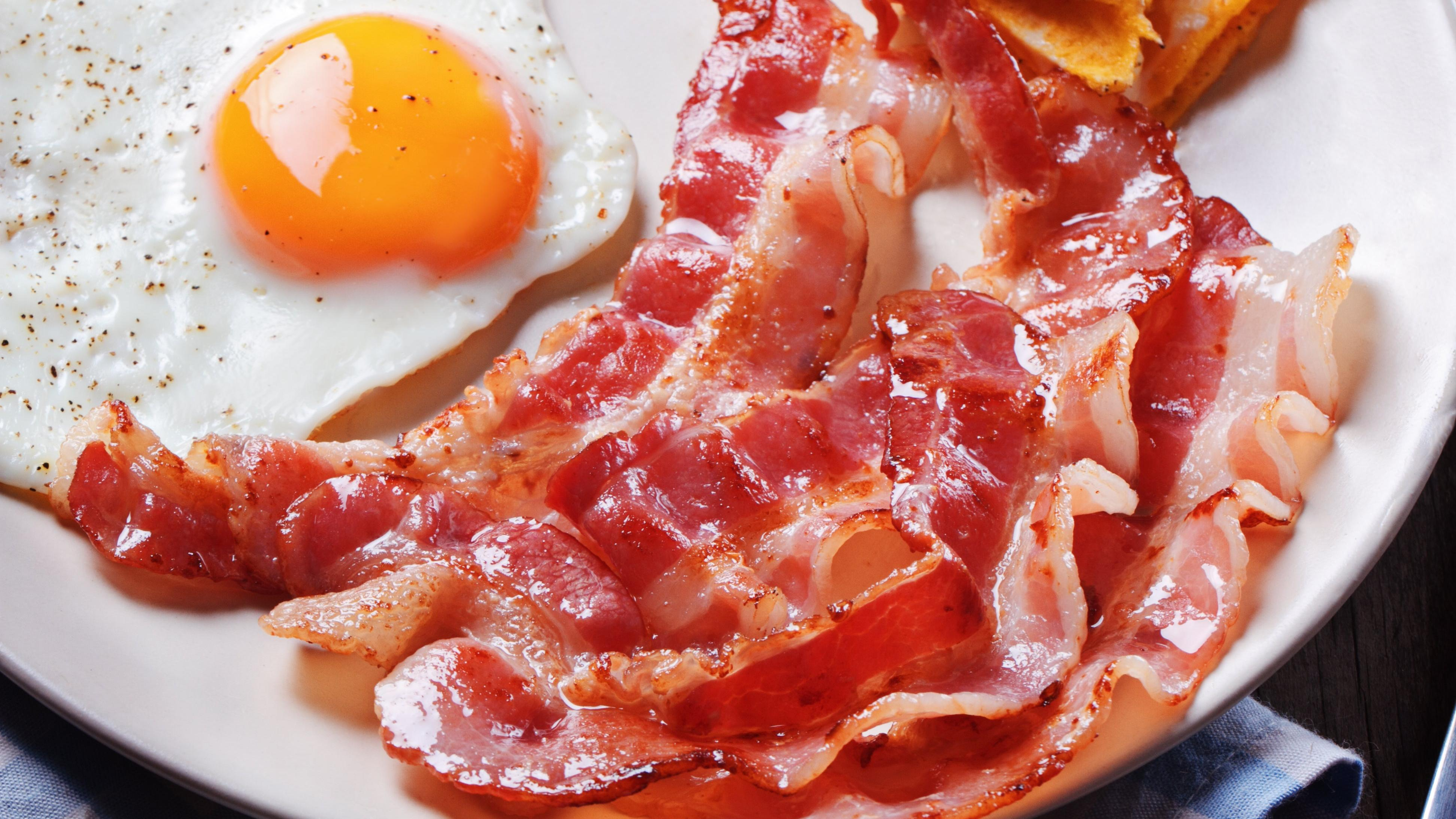Americans Somehow Aren't Eating Enough Bacon
Pork just isn't selling that well in American grocery stores.
The pork industry is a bit hog-tied right now. The Wall Street Journal reports that the industry might actually be too efficient for its own good, because it's pumping out more cuts of meat than people actually purchase or eat. As a result, pork producers are worried about the future. What happened to our once bacon-obsessed nation?
Why aren’t people buying pork?
Pork, as a product, has a lot of attributes that make it a hard sell. For one thing, it has a reputation for being dry; this is largely because home cooks still prepare it with the belief that it needs to be very thoroughly cooked for safety reasons. This is due to outdated concerns about the disease trichinosis, which have largely been ironed out in modern food systems. Ever since farmers began raising pigs indoors rather than outdoors where chances of parasitic infection are much higher, trichinosis has become an extremely rare occurrence.
Eating a pork chop cooked to medium, or even medium-rare, is fine from a food safety perspective. It also tastes way better. If you're concerned, sous vide is a great way to make sure your chops get to the right temp.
Another issue with pork is the way its been marketed over the years. The Wall Street Journal notes that some insiders believe positioning pork as "the other white meat" might not have been the best thing for the industry. With the "white meat" framing, parallels are drawn between pork and chicken—and people who shop on a budget tend to purchase poultry over pork, since the latter is more expensive. Comparing the two just highlights the cost disparity.
Finally, pork already faces more hurdles than some other varieties of meat at the best of times. Religious laws in both Islam and Judaism prevent people from eating pork altogether, which shrinks the market further.
The Wall Street Journal says in the piece that an estimate from Kansas State University shows the demand for pork is 9% lower now than it was 20 years ago. However, due to increased efficiency, U.S. farmers now produce 25% more pork than they did 20 years ago. So how do pork producers crawl out of this hole?
The answer to pork’s problems may lie in bacon
There are a few possible strategies to offload all this extra pork on the market. One of them is to work on expanding markets overseas, in countries where pork demand is generally higher. But domestically, some think that pushing one particular part of the pig might do the trick: bacon. After all, creating a "bacon craze" has been a successful tactic for the pork lobby in the past. Everyone loves bacon, right?
The thing is, bacon can be messy, creating splatter on the stovetop. If you opt for cooking it in the oven, it can take up to 20 minutes. And if you microwave it, you're still filling your kitchen with bacon smells (not bad, but strong). And since so many people have returned to the office in recent months, they have less time to cook at home and might have more hesitation about preparing bacon in a communal setting like a workplace break room.
That's why Smithfield Foods, under its Farmer John brand, is working on developing a quick-cook bacon that's parcooked so that prep time will be cut in half. It'll even come packaged on parchment paper, which means you can put it in any cooking device you like, from the air fryer to the microwave. Tyson Foods, meanwhile, is working on producing more deboned ham for ready-to-eat formats like lunchmeat and ham steaks, as well as pre-seasoned cuts designed to further reduce prep time.
At the risk of sounding like a pork shill, I think pork is more versatile than beef, and might be my favorite meat to cook with. There's nothing like a perfectly cooked pork shoulder (a meat thermometer is your best friend here), roasted ribs, or nice fatty pork belly. And a thick pork chop can rival any steak, as long as you don't cook the hell out of it.
You can also use pork as an accent rather than a main ingredient in stir fries, tossing tiny bits of pork in with green beans in oyster sauce. As much as we associate pigs with gluttony, you can in fact be sparing with your pork and still get a ton of mileage out of it.
As a pork enthusiast, I might be in the minority, but the industry's newly revived bet on bacon and its emphasis on convenience might be enough to get others on board. Don't be surprised to see more prepared pork products hit the grocery aisles in the coming months. There's a lot that farmers need to sell.
